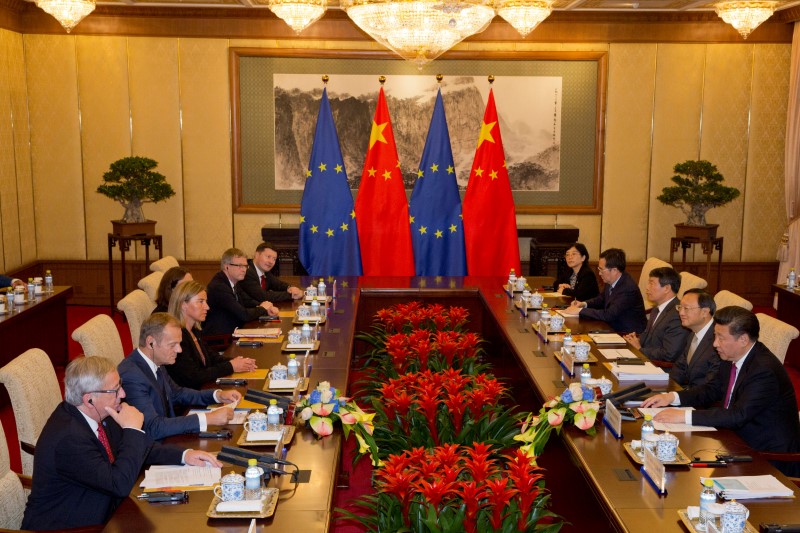BRUSSELS (Reuters) - European Union countries agreed on Tuesday to reforms giving the bloc the possibility of imposing higher duties on excessively cheap imports that would help shore up its defences under a new trading relationship with China.
After three years of wrangling, representatives of the 28 EU members voted by a qualified majority to allow higher tariffs than might normally apply if exporters are benefiting from artificially low raw material costs.
Peter Ziga, Slovakia's minister in charge of trade, hailed the move on Tuesday as a "major breakthrough".
"Europe cannot be naive and has to defend its interests, especially in case of dumping. This is a crucial step towards a solid solution that would help EU producers cope with unfair competition and practices," he said.
Duties are currently limited by the EU's "lesser duty rule", under which the import duty should be set at a level to remove the injury to EU producers rather than at a higher rate required to push the exporter's price to what is fair and normal - known as the "dumping margin".
Duties could in future be set at up to the full dumping margin rate if there are state-induced distortions of raw material and energy costs for exporting companies.
For cold-rolled steel from China, for example, the dumping margin was over 50 percent, but the injury margin only around 20 percent, so the lesser duty of about 20 percent was set. For the same steel grade from China, the United States has imposed duties of more than 200 percent.
Britain and other more liberal free trade nations had blocked any changes.
Slovakia, which holds the six-month rotating presidency, in the end secured backing for a compromise which would allow higher duties if the raw materials in question accounted for more than 27 percent of the cost of production and more than 7 percent individually.
Other reforms include shortening the period, currently of up nine months, that the European Commission can take to set provisional import duties and allowing the Commission to initiate its own investigations without an industry complaint.
The reform of the EU's "trade defence instruments" is seen as a counterbalance to EU proposals to change the way it assesses whether Chinese manufacturers are exporting at unfairly low prices. Critics say it will be harder to impose duties.

The reform will need backing by the European Parliament.